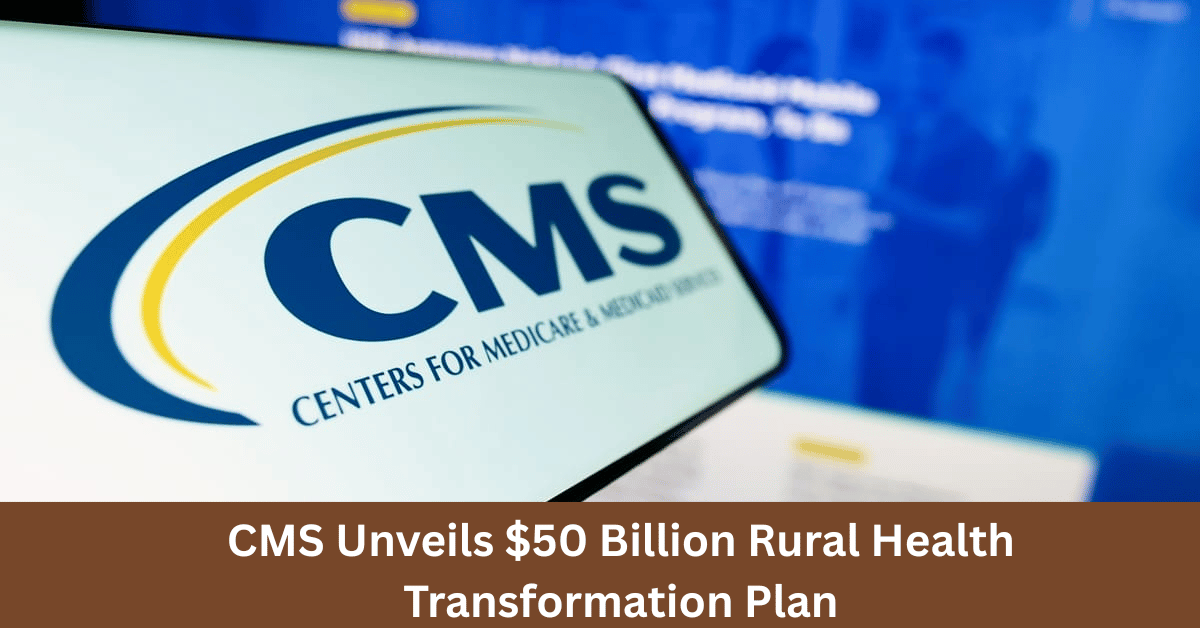Access to quality healthcare in rural areas has long been a challenge in the United States. Many rural communities face shortages of hospitals, clinics, and medical professionals, making it difficult for residents to receive timely and effective care. Recognizing this problem, the Centers for Medicare & Medicaid Services (CMS) has introduced a new initiative aimed at transforming rural health services.
The CMS has launched a $50 billion Rural Health Transformation Program, offering funds to states to improve healthcare infrastructure and services in rural regions. This significant investment is expected to strengthen rural healthcare systems, enhance patient outcomes, and reduce disparities between urban and rural health access.
What is the CMS Rural Health Transformation Program?
The CMS Rural Health Transformation Program is a comprehensive effort designed to support states in modernizing and expanding healthcare services in rural areas. With a budget of $50 billion, this program focuses on improving hospital facilities, boosting telehealth capabilities, and training healthcare workers specialized in rural medicine.
The goal is to create sustainable health systems that can meet the unique needs of rural populations, including elderly patients and those with chronic illnesses. By providing states with access to these funds, CMS hopes to encourage innovative solutions that will have a long-lasting impact on rural health care delivery.
Why is This Program Important for Rural Communities?
Rural communities often struggle with limited access to healthcare due to factors like distance, fewer healthcare providers, and lack of specialized medical services. This leads to higher rates of preventable diseases and worse health outcomes compared to urban areas. The COVID-19 pandemic further exposed these vulnerabilities.
By investing in rural health infrastructure and services, the CMS program aims to close the healthcare gap between rural and urban America. Strengthening rural healthcare helps ensure everyone, no matter where they live, has access to the care they need.
How Can States Apply for CMS Funds?
States interested in participating in the Rural Health Transformation Program need to submit detailed applications outlining their plans to use the funds. These plans should focus on strategies for improving healthcare access, quality, and affordability in rural areas.
The application process encourages collaboration between state health departments, local hospitals, and community organizations. CMS will review the applications based on their potential impact, innovation, and sustainability before awarding the funds.
Key Areas the Program Will Support
The CMS program targets several core areas vital to improving rural healthcare. These include upgrading hospital and clinic infrastructure, expanding telemedicine services, improving emergency medical care, and supporting healthcare workforce development in rural areas.
Telehealth is a major focus, as it can overcome geographic barriers to care by connecting patients with specialists and doctors remotely. Workforce development ensures that rural areas have enough trained professionals to meet their healthcare needs.
Potential Benefits of the Program for Younger Generations
Although rural healthcare challenges often affect older adults, younger generations will also benefit from the program. Improved healthcare infrastructure and services can encourage young people to stay in or move to rural areas, supporting local economies.
Better access to mental health services and preventive care will help young people live healthier lives and avoid chronic diseases later on. Enhanced health education and technology use in rural areas will also prepare younger generations for a healthier future.
Challenges to Consider
While the CMS Rural Health Transformation Program is promising, there are challenges to keep in mind. Implementing large-scale changes in rural healthcare requires coordination across many agencies and stakeholders. States must ensure that funds are used efficiently and transparently.
Another challenge is addressing social determinants of health such as poverty, education, and transportation that also impact healthcare outcomes. Successful transformation means taking a holistic approach beyond just medical care.
Looking Ahead: The Future of Rural Health in America
The $50 billion Rural Health Transformation Program signals a major step toward improving healthcare in rural America. If successful, it could serve as a model for other countries facing similar rural health challenges. By strengthening rural healthcare, the program aims to create healthier communities and reduce health disparities nationwide.
States and communities now have a unique opportunity to make lasting improvements in how healthcare is delivered to millions of rural residents. With careful planning and collaboration, this initiative could transform rural healthcare for generations to come.




